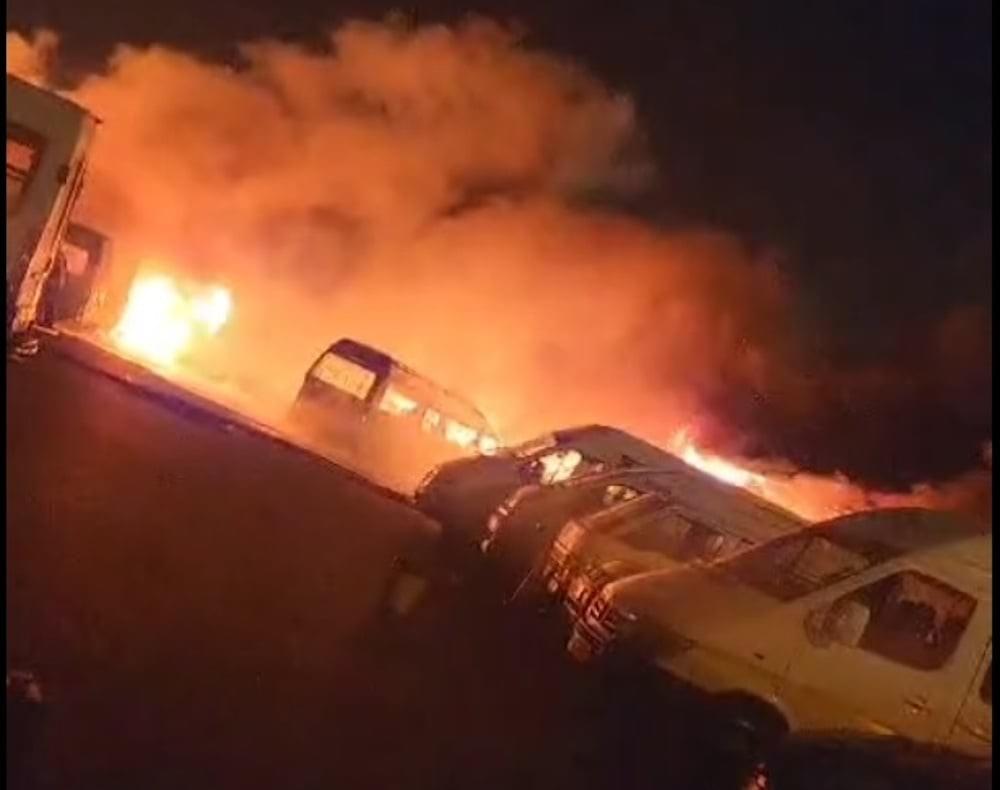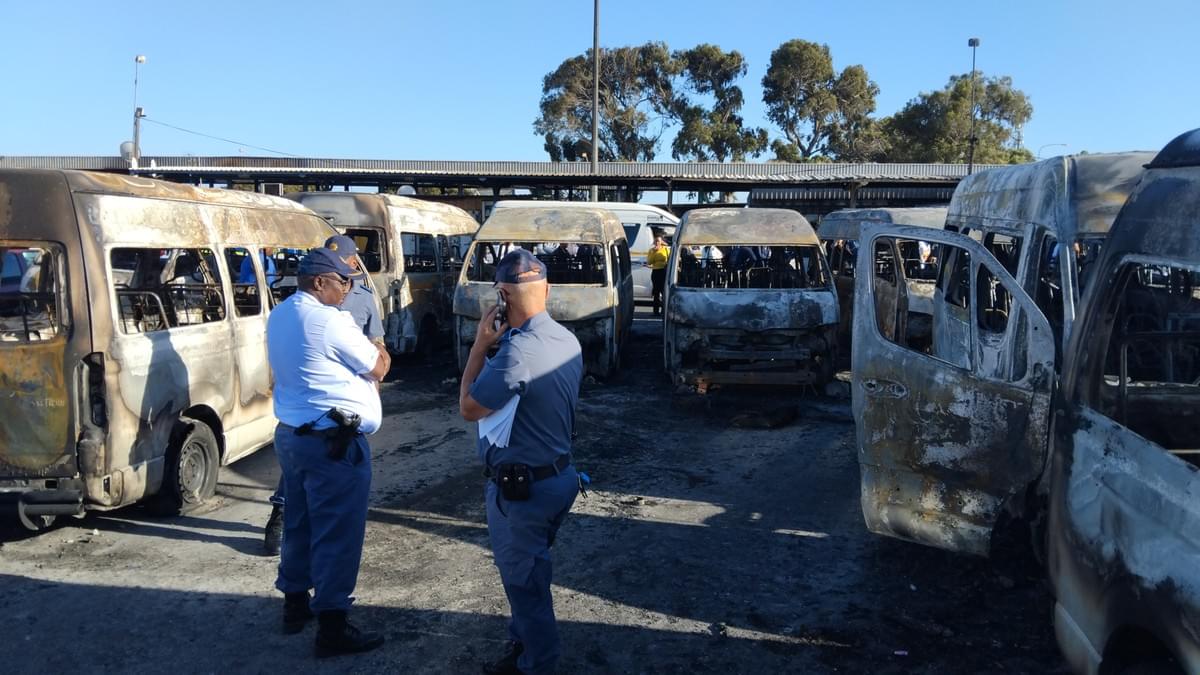
The taxi industry is more than just a mode of transport in South Africa—it is the lifeblood of our communities. It carries the dreams of the working class, the hopes of students on their way to school, and the resilience of small business owners trying to make ends meet.
It is an industry built on sacrifice, sweat, and an unbreakable spirit. And yet, it remains under siege.
The role of the taxi industry in South Africa extends beyond transportation—it is deeply woven into our history. During apartheid, when Black South Africans were systematically excluded from public services, taxis became a means of resistance, providing much-needed mobility and independence.
The industry was built by those who refused to accept oppression, and today, it continues to serve millions, particularly in marginalized communities where formal public transport systems are insufficient. Taxis do not just move people—they move economies, families, and aspirations.

The recent arson attack in Nyanga, Cape Town, where 13 taxis, four Sprinter buses, and a civilian vehicle were torched, has left me deeply shaken. No injuries were reported, but make no mistake—this was an attack on livelihoods, on families who depend on these taxis for survival. I cannot begin to imagine the pain of waking up to find your only source of income reduced to ashes.
The taxi industry is already burdened with endless challenges—unfair competition, a lack of government support, and operational struggles—so why must it also endure the cruelty of deliberate destruction? My heart breaks for the owners, the drivers, and the commuters who now have to find alternative transport. Who is responsible for this? And why?
Reports indicate that the taxis targeted in the Nyanga attack belonged to the CATA association, raising concerns about possible internal conflicts. Taxi violence has long been a shadow over the industry, with territorial disputes and competition over lucrative routes often leading to bloodshed.
While no lives were lost in this particular incident, the potential for escalation is frightening. These conflicts do not just affect taxi owners; they disrupt entire communities, leaving commuters stranded and livelihoods destroyed. It is a cycle that must end.
While taxi violence is a painful reality, we cannot allow it to overshadow the resilience of this industry. Behind every taxi is a family—a wife, children, parents—who anxiously wait for their loved one to return home safely. But some never do. Some become statistics in a cycle of violence that seems impossible to break. And yet, despite it all, the taxi industry continues to stand, providing an essential service to millions of South Africans every single day.
I have a deep respect for this industry. During the 2019 general elections, I had the privilege of working closely with taxi owners as part of their elections strategy, for the taxi industry led A.T.A. political party. Even though my time with them was brief, it gave me an inside look into their struggles, their aspirations, and their unwavering commitment to their communities.
This is an industry that employs hundreds of thousands of people—drivers, marshals, administrative staff—and indirectly supports many more, from hawkers selling food at taxi ranks to mechanics fixing the very vehicles that keep our economy moving. It is estimated that taxis carry over 60% of South Africa’s commuters, making it one of the largest contributors to our economy.
But instead of being celebrated, it is often demonized, ignored, and left to fend for itself.
The challenges are many. Overloaded vehicles and reckless driving have earned the industry a reputation for being unsafe. Violence and territorial disputes have turned taxi ranks into battlegrounds. A lack of regulation and financial support has forced many operators to rely on old, deteriorating vehicles because they simply cannot afford new ones.
The government has made attempts to modernize the industry, including the introduction of E-MBTs to reduce carbon emissions, but much more needs to be done. The taxi industry does not need more promises—it needs action.

In 2023, I was honored to be invited to a taxi industry prayer event in Nyanga. Standing before a large audience, I was given the opportunity to address some of the most influential figures in the industry. My message that day was simple but powerful: unity. In an industry often plagued by division, I urged them to stand together—not just for their businesses, but for the future of an industry that millions of people depend on.
That moment solidified my bond with the industry even more. These comrades welcomed me into their space, and I will always stand with them in times of hardship and triumph.
We must stand in solidarity with taxi owners, drivers, and all those who depend on this industry for their survival. The destruction of one taxi is not just an attack on a vehicle; it is an attack on a community, on a breadwinner, on a dream.

As South Africans, we cannot afford to lose sight of the essential role that this industry plays in our daily lives. We must call for justice, for protection, for real solutions that will ensure that taxi owners and operators can work without fear.
To the taxi industry—I see you, I respect you, and I stand with you. May we never forget the sacrifices you make, the dangers you face, and the resilience that keeps you going.
The road ahead is not easy, but together, we can fight for a future where this industry is given the dignity, recognition, and support it truly deserves
Sisonke Comrades.

